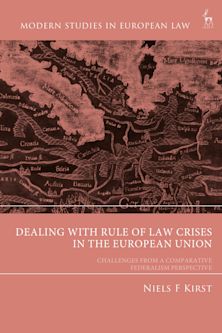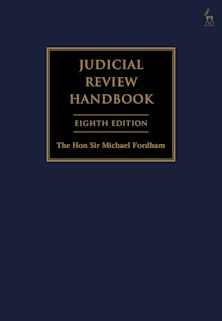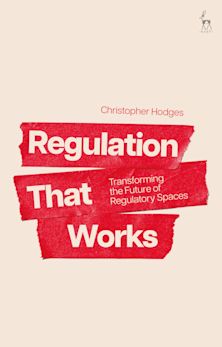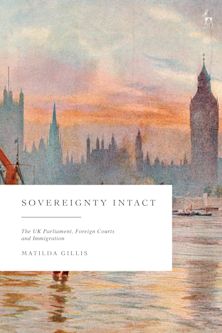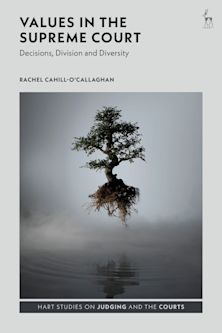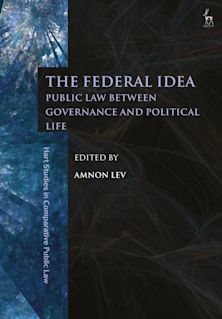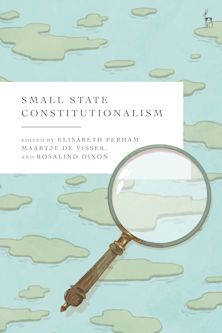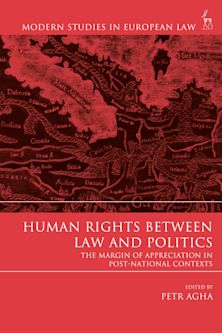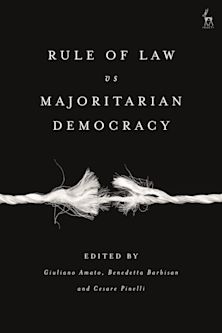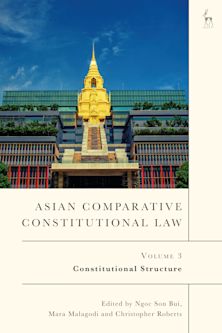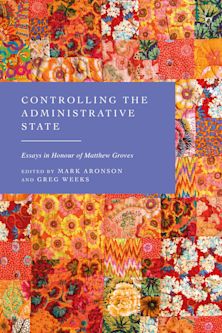Automation in Governance
Theory, Practice and Problems
Automation in Governance
Theory, Practice and Problems
Description
This book examines the principles and practice of automation in public governance.
Automation is changing the face of government and public law. This collection examines key challenges posed by automation, focusing on theoretical issues, case studies, as well as practices and proposals for reform.
It brings together scholars, public officials and judges from a range of jurisdictions, including the UK, the USA, Australia, Canada, Austria, France and the Netherlands to examine principles that should guide automation in government and what can be learned from the growing policy failures involving automation.
The book contains case studies of significant policy failures involving automation - the Dutch 'child benefits scandal', the Horizon accounting software used by the UK Post-Office and Australia's robodebt social security scandal. These chapters are valuable studies about policy failures involving automation and highlight lessons to be learned.
Making an important contribution to public law, governance and automation, the collection highlights challenges faced by all jurisdictions and draws out lessons from some serious failures of administration involving automation.
Table of Contents
2. The Resurgence of the Administrative Machine: New Forms of Dehumanisation, Julia Dahlvik and Hannah Medea Breier (FH Campus Wien, Austria)
3. Judicial Review Methodology in the Automated State, Lord Sales (Supreme Court, UK)
4. Policing, AI and the New Surveillance Relationship, Fraser Sampson (Sheffield Hallam University, UK)
5. The Legality of Black Boxes in Administrative Law, David Tan (Deakin University, Australia)
6. A Very English Scandal: The Horizon System and Institutional Government Failings, Alexandra Sinclair (University of Sydney, Australia)
7. Strengthening Safeguards and Controls in the Digital Welfare State: Insights from the Dutch Rechtsstaat in the Aftermath of the Childcare Benefits Scandal, Maarten Bouwmeester (University of Groningen, the Netherlands)
8. Robodebt – A Failure of Automation or Something Else? Matthew Groves (Deakin University, Australia)
9. The Benefits and Risks of Automating Refugee Status Decision-Making: Its Potential Use for Group-based Categorisations, Maria O'Sullivan (Deakin University, Australia)
10. Automated Decision-Making in Australia's Migration System: Risks and Opportunities, Daniel Ghezelbash (University of South Wales, Australia) and Niamh Kinchin (University of Wollongong, Australia)
11. The Laws of Public Data Gaps, Joe Tomlinson (University of York, UK), Naoise Coakley (University of York, UK) Oliver Butler (University of Nottingham, UK), Stergios Aidinlis (Durham University, UK), Cassandra Somers-Joce (University of Oxford, UK), Jed Meers (University of York, UK), and Elizabeth O'Loughlin (Durham University, UK)
12. Judicial Review of AI in UK Government: Two Emergent Forms of Legal Risk, Robert Thomas (University of Manchester, UK) and Joe Tomlinson (University of York, UK)
13. Artificial Intelligence and Administrative Tribunals, Paul Daly (University of Ottawa, Canada)
14. Global Perspectives on Automated Welfare: Comparative Considerations for Assessing Impacts, Victoria Adelmant (New York University, USA)
15. Artificial Intelligence and Public Administration in the European Union and Canada: Towards a Combined Protection of Fundamental Rights and Administrative Law's Core Principles? Céline Castets-Renard (University of Ottawa, Canada)
16. AI, Public Governance and the Cult of Innovation: History, Problems and Possibilities, Yee-Fui Ng and Stephen Gray (Monash University, Australia)
17. Conclusion, Yee-Fui Ng (Monash University, Australia) and Matthew Groves (Deakin University, Australia)
Product details
| Published | 27 Nov 2025 |
|---|---|
| Format | Ebook (PDF) |
| Edition | 1st |
| Extent | 384 |
| ISBN | 9781509984978 |
| Imprint | Hart Publishing |
| Series | Hart Studies in Comparative Public Law |
| Publisher | Bloomsbury Publishing |

ONLINE RESOURCES
Bloomsbury Collections
This book is available on Bloomsbury Collections where your library has access.












